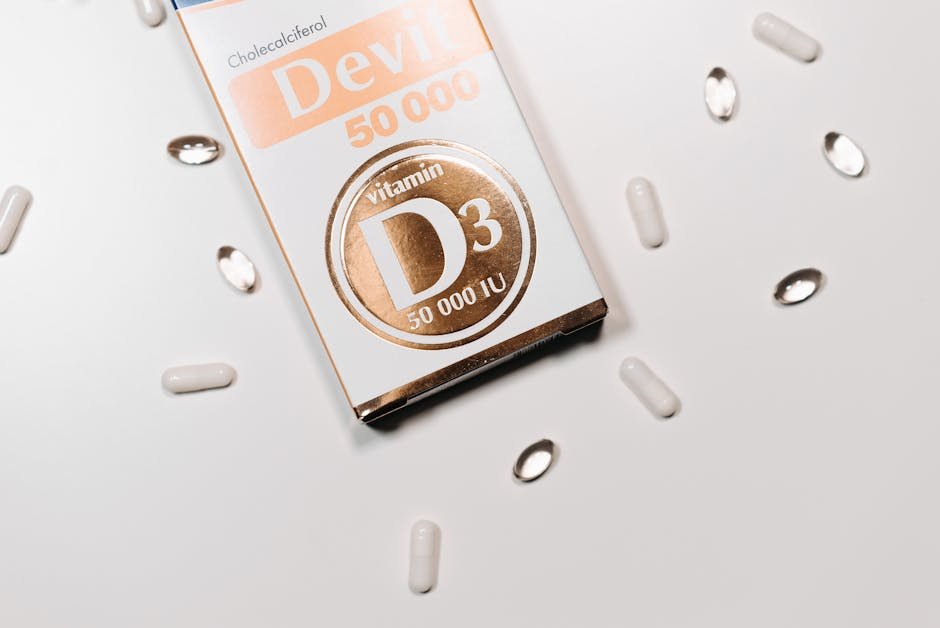Menopause is a natural biological process marking the end of a woman’s reproductive years. It typically occurs between the ages of 45 and 55. During this transition, a woman can experience a myriad of physical and emotional changes because her hormones, especially estrogen, are fluctuating. Among the many factors that can influence the health and well-being of women during this time, one of the most essential is vitamin D. This blog post will discuss the significance of vitamin D in maintaining health during menopause, the best ways for women to get it, and the reasons the vitamin can help ease some of the life stage’s challenges.
Understanding Vitamin D
- Vitamin D is a fat-soluble vitamin that is vital for sustaining health. It is very important in several areas, notably:
- Calcium absorption, which is fundamental to our bone health.
- Immune function, which protects our bodies from all kinds of health threats.
- Reducing inflammation, which is now recognized as being at the root of many diseases.
Sources of Vitamin D
Vitamin D can be obtained from several sources:
1. Sunlight: The skin produces vitamin D when it is exposed to sunlight. Depending on factors like skin type, location, and time of year, just 10 to 30 minutes of sun exposure several times a week can suffice.
2. Food: Fatty fish (salmon, mackerel, sardines), fish liver oils, egg yolks, and fortified foods like milk, orange juice, and cereals are some of the natural sources rich in vitamin D.
3. Supplements: Supplements containing vitamin D2 (ergocalciferol) or D3 (cholecalciferol) in a variety of forms are available to those who cannot get enough vitamin D from sunlight and food.

The Importance of Vitamin D in Menopause
Health issues can arise when women move into the menopausal stage of life and their estrogen levels drop. Concerns often focus on osteoporosis, cardiovascular disease, and mood disorders, but vitamin D can help mitigate some of these effects.
Bone Health
One of menopause’s most profound effects is the increased osteoporosis risk, a condition marked by very weak and brittle bones. This is largely because the estrogen levels necessary to maintain bone density dip so dramatically during this time. Further, vitamin D is equally critical; it’s necessary for the absorption of calcium—a mineral that’s absolutely vital for the health and maintenance of bones. We know that postmenopausal women who take adequate amounts of vitamin D have better bone density and are at a much lower risk for having fractures than women who have insufficient amounts of this important vitamin in their system.
Mood Regulation
Emotional challenges often accompany menopause, yet little is known about their causes and how to best address them. Anxiety, depression, and mood swings are not uncommon. Some researchers have suggested that our old friend vitamin D may be playing a role, or at least a part of a bigger picture involving other nutrients. They say that the mood regulation that some may achieve with vitamin D might be directly linked to brain receptors for the vitamin. A study in the journal Psychosomatic Medicine seems to back up this connection.
Cardiovascular Health
Women are at an increased risk of cardiovascular disease after menopause. This is due to a drop in estrogen levels. Vitamin D may influence this process. Some studies link low levels of vitamin D to high blood pressure, heart failure, and other heart problems. They suggest that having adequate vitamin D might lower your chances of developing heart disease. Ensuring that you have enough of this vitamin could help keep your heart healthy. It might serve as an assist during the menopause transition.
How to Ensure Adequate Vitamin D Levels
To gain the benefits of vitamin D during menopause, you must achieve sufficient levels of this vitamin. How do you do that?
Here are some tips:
- Get Sunlight:
Aim for 10 to 30 minutes of sun exposure several times a week, depending on your skin type and location. Be mindful of sun safety and avoid overexposure.
- Incorporate Vitamin D-rich Foods:
Fatty fish, fortified foods, and egg yolks should be staples in your diet if you wish to boost your vitamin D intake.
- Consider Supplements:
If you’re relying solely on the methods described above, it might do you well to check in with a healthcare professional and see if daily vitamin D supplementation might be right for you.
- Regular Testing:
Unless you have low vitamin D levels already, it might be a good idea to check up on that every so often. You can test your vitamin D levels a few times a year if you feel it necessary.
Conclusion
Women’s health during menopause can get a boost from vitamin D. The nutrient functions in several ways to help protect against some of the conditions that might arise during this life stage. Among other roles, vitamin D helps regulate mood, promotes cardiovascular health, and is critical for bone health. In this particular window of time, it’s all the more important for women to ensure they’re getting adequate amounts—either from sun exposure, food, or supplements.
